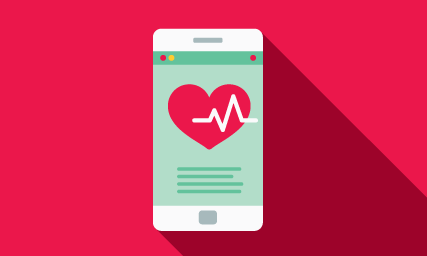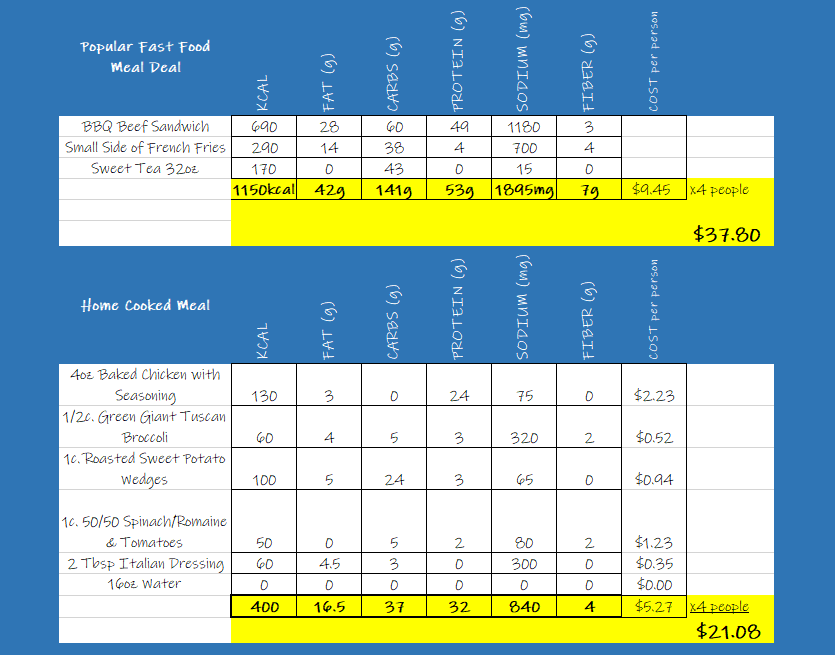Salt, sugar, fat. They make food taste good. We need each of these in our diets, but overindulgence in any one of them can incite or exacerbate a host of chronic diseases such as type 2 diabetes, hypertension and cardiovascular diseases.
Registered dietitians provide timely, scientifically validated nutrition information and services. Registered dietitians see patients of different, backgrounds, food preferences, health conditions and goals.
More often than not, patients are unaware of how much fat, salt and sugar are in the foods they choose. One example is fast food. Drive-thru restaurants have become a staple in the American diet. This results in a significant cost to our wallets and health.
Additionally, many people fault the rising cost of groceries on their inability to buy healthy foods.
See the comparison of the financial cost and nutrition content of a popular barbecue restaurant meal versus that of a home-cooked meal, for a family of four.
Rethink Your Drinks
Many people overlook beverages such as sweet tea, specialty coffees and juices. These all have a significant amount of calories, carbohydrates and fat that can affect your health. They’re not easy on your wallet, either. For example, the average specialty coffee is upwards of $5.
Electrolyte replacement drinks have also made their way into mainstream consumption for kids, teens and adults. They are thirst-quenching, but contain high amounts of carbohydrates and sodium that are intended for athletes who need to replenish their electrolytes after exercise. They were not designed for the average person.
Knowledge Is Power
In 2018, the FDA enacted a law requiring chain restaurants with 20 or more locations to post the nutrition facts of their menu for public access.
With a quick search from your smartphone, you can access the nutrient content for calories, carbohydrates, fat, sodium, fiber and protein of any menu item from your favorite chain restaurant’s website.
The average person only needs 60g of carbohydrates per meal, and no more than 2,300mg of sodium (1,500mg for those with hypertension or heart disease) per day

Heart disease is the leading cause of death for both men and women.
Our free online risk assessment only takes a few minutes. It will help you better understand your risk of developing heart disease and how you may be able to lower it.




